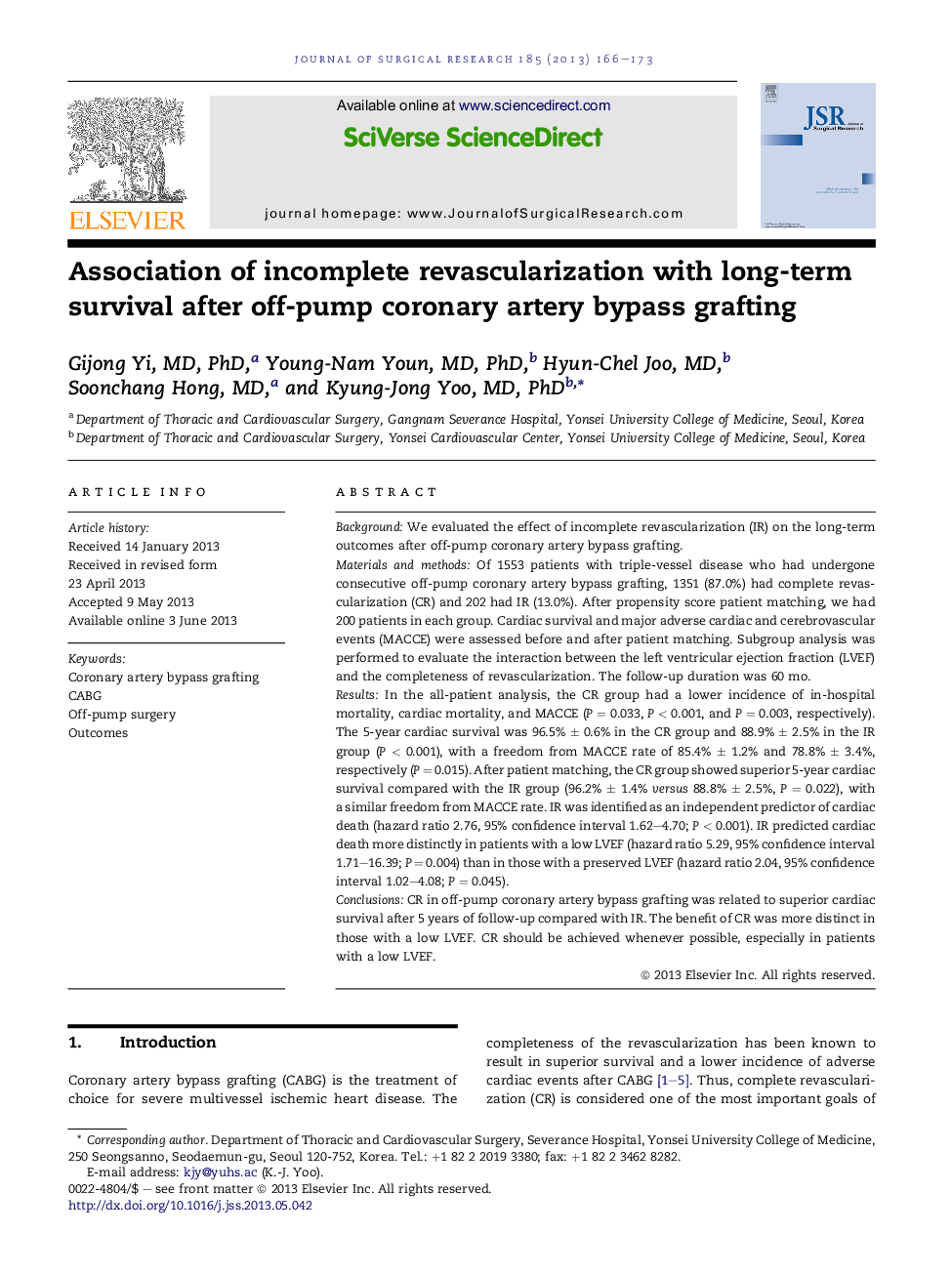| Article ID | Journal | Published Year | Pages | File Type |
|---|---|---|---|---|
| 4300710 | Journal of Surgical Research | 2013 | 8 Pages |
BackgroundWe evaluated the effect of incomplete revascularization (IR) on the long-term outcomes after off-pump coronary artery bypass grafting.Materials and methodsOf 1553 patients with triple-vessel disease who had undergone consecutive off-pump coronary artery bypass grafting, 1351 (87.0%) had complete revascularization (CR) and 202 had IR (13.0%). After propensity score patient matching, we had 200 patients in each group. Cardiac survival and major adverse cardiac and cerebrovascular events (MACCE) were assessed before and after patient matching. Subgroup analysis was performed to evaluate the interaction between the left ventricular ejection fraction (LVEF) and the completeness of revascularization. The follow-up duration was 60 mo.ResultsIn the all-patient analysis, the CR group had a lower incidence of in-hospital mortality, cardiac mortality, and MACCE (P = 0.033, P < 0.001, and P = 0.003, respectively). The 5-year cardiac survival was 96.5% ± 0.6% in the CR group and 88.9% ± 2.5% in the IR group (P < 0.001), with a freedom from MACCE rate of 85.4% ± 1.2% and 78.8% ± 3.4%, respectively (P = 0.015). After patient matching, the CR group showed superior 5-year cardiac survival compared with the IR group (96.2% ± 1.4% versus 88.8% ± 2.5%, P = 0.022), with a similar freedom from MACCE rate. IR was identified as an independent predictor of cardiac death (hazard ratio 2.76, 95% confidence interval 1.62–4.70; P < 0.001). IR predicted cardiac death more distinctly in patients with a low LVEF (hazard ratio 5.29, 95% confidence interval 1.71–16.39; P = 0.004) than in those with a preserved LVEF (hazard ratio 2.04, 95% confidence interval 1.02–4.08; P = 0.045).ConclusionsCR in off-pump coronary artery bypass grafting was related to superior cardiac survival after 5 years of follow-up compared with IR. The benefit of CR was more distinct in those with a low LVEF. CR should be achieved whenever possible, especially in patients with a low LVEF.
